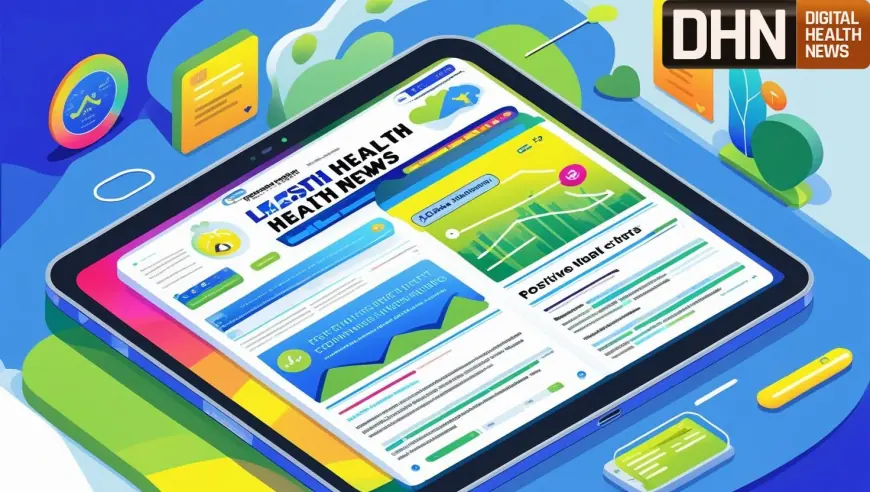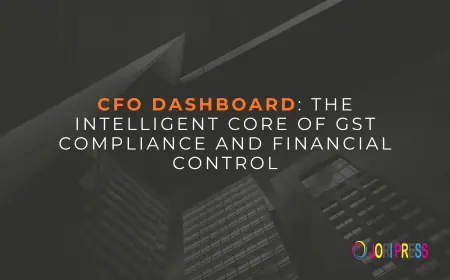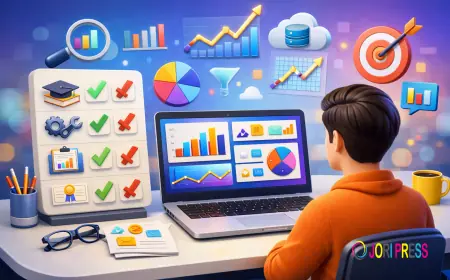How AI is Transforming the Future of Data Analytics
Explore how AI is revolutionizing data analytics through automation, predictive insights, and real-time processing. Stay informed with digital health news today.

Artificial Intelligence (AI) is no longer a futuristic concept—it’s a present-day force driving innovation across industries. One of the most significant areas where AI is making an impact is data analytics. From automating complex processes to uncovering deep insights in real time, AI is reshaping how businesses understand and use data.
In sectors like healthcare, finance, retail, and manufacturing, AI is moving data analytics from descriptive to predictive and even prescriptive levels. According to sources like digital health news today, AI-powered analytics is playing a vital role in transforming digital health, enabling faster diagnoses, personalized treatment plans, and improved patient outcomes.
Here’s how AI is revolutionizing the future of data analytics:
1. Automating Data Preparation and Cleaning
Data analysts often spend up to 80% of their time cleaning and organizing data before any analysis begins. AI is changing that. Through intelligent algorithms, AI can automatically identify errors, correct inconsistencies, and organize datasets—dramatically reducing manual labor and time.
This automation enables analysts to focus more on extracting insights and making data-driven decisions.
2. Enhanced Predictive Analytics
Traditional analytics tools are limited in their ability to forecast future outcomes. AI, especially when combined with machine learning, can identify hidden patterns in data and make accurate predictions about future trends.
In healthcare, for example, AI algorithms can predict patient deterioration, disease outbreaks, or hospital readmission risks—capabilities that are already being applied in clinical settings. Digital health news today often highlights such AI breakthroughs that improve patient care and optimize resource use.
3. Natural Language Processing (NLP) for Easier Access
AI-powered NLP allows users to interact with data using plain language. This democratizes data analytics, enabling non-technical users to ask questions like, “What were our top-performing products last quarter?” and receive clear, data-backed answers.
By simplifying access, AI makes data-driven decision-making more inclusive and faster across all levels of an organization.
4. Real-Time Insights with Streaming Analytics
AI excels in processing large volumes of data in real time. With the rise of IoT and connected devices, especially in healthcare, businesses now require instant insights to respond to critical events.
AI-based streaming analytics tools can monitor data as it’s generated, alerting teams to anomalies or emerging trends instantly. As reported by digital health news today, this capability is essential in monitoring patients remotely and improving emergency response systems.
5. Personalization at Scale
One of the standout benefits of AI in analytics is its ability to personalize experiences at scale. By analyzing user behavior, preferences, and historical data, AI can create hyper-targeted marketing campaigns, product recommendations, or even individualized treatment plans in healthcare.
This personalized approach improves customer satisfaction, loyalty, and outcomes—especially in sectors like digital health, where digital health news today points to AI as a key enabler of precision medicine.
6. Explainable AI and Trustworthy Analytics
As AI systems become more complex, the need for explainability grows. Businesses and regulators alike demand transparency in how decisions are made—especially when it involves personal or sensitive data.
The rise of Explainable AI (XAI) ensures that analytics models not only deliver insights but also explain the rationale behind them. In healthcare, where trust is essential, this transparency helps professionals and patients understand and trust AI-generated recommendations.
Final Thoughts
AI is fundamentally transforming data analytics—making it faster, smarter, more accurate, and more accessible. From automating tedious tasks to enabling life-saving predictions, the future of analytics is clearly AI-driven.
As platforms like digital health news today continue to showcase, AI's role in digital health is just one example of its wider potential. Organizations that embrace AI in their data strategies will be better equipped to innovate, compete, and deliver value in an increasingly data-driven world.
What's Your Reaction?
 Like
0
Like
0
 Dislike
0
Dislike
0
 Love
0
Love
0
 Funny
0
Funny
0
 Angry
0
Angry
0
 Sad
0
Sad
0
 Wow
0
Wow
0












































